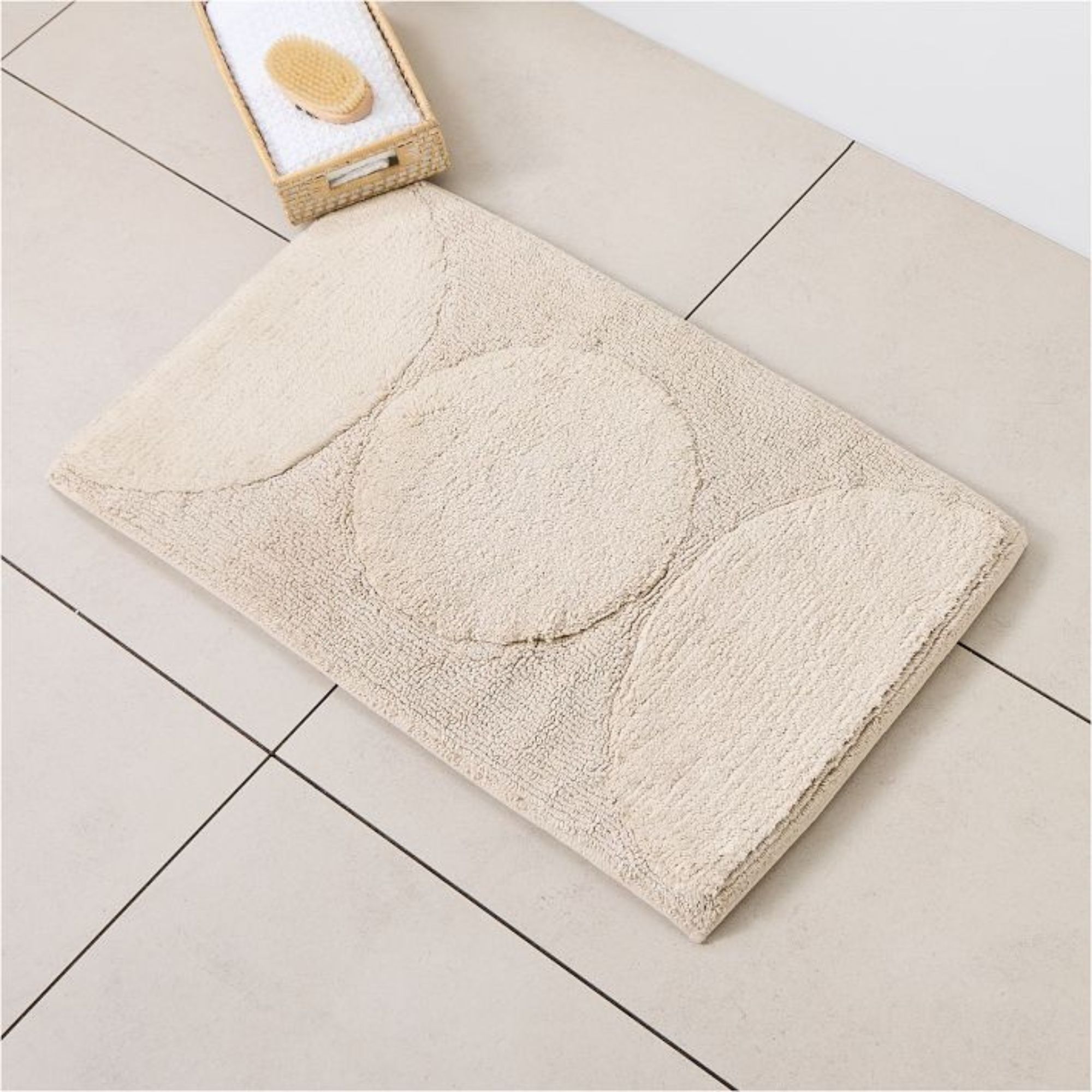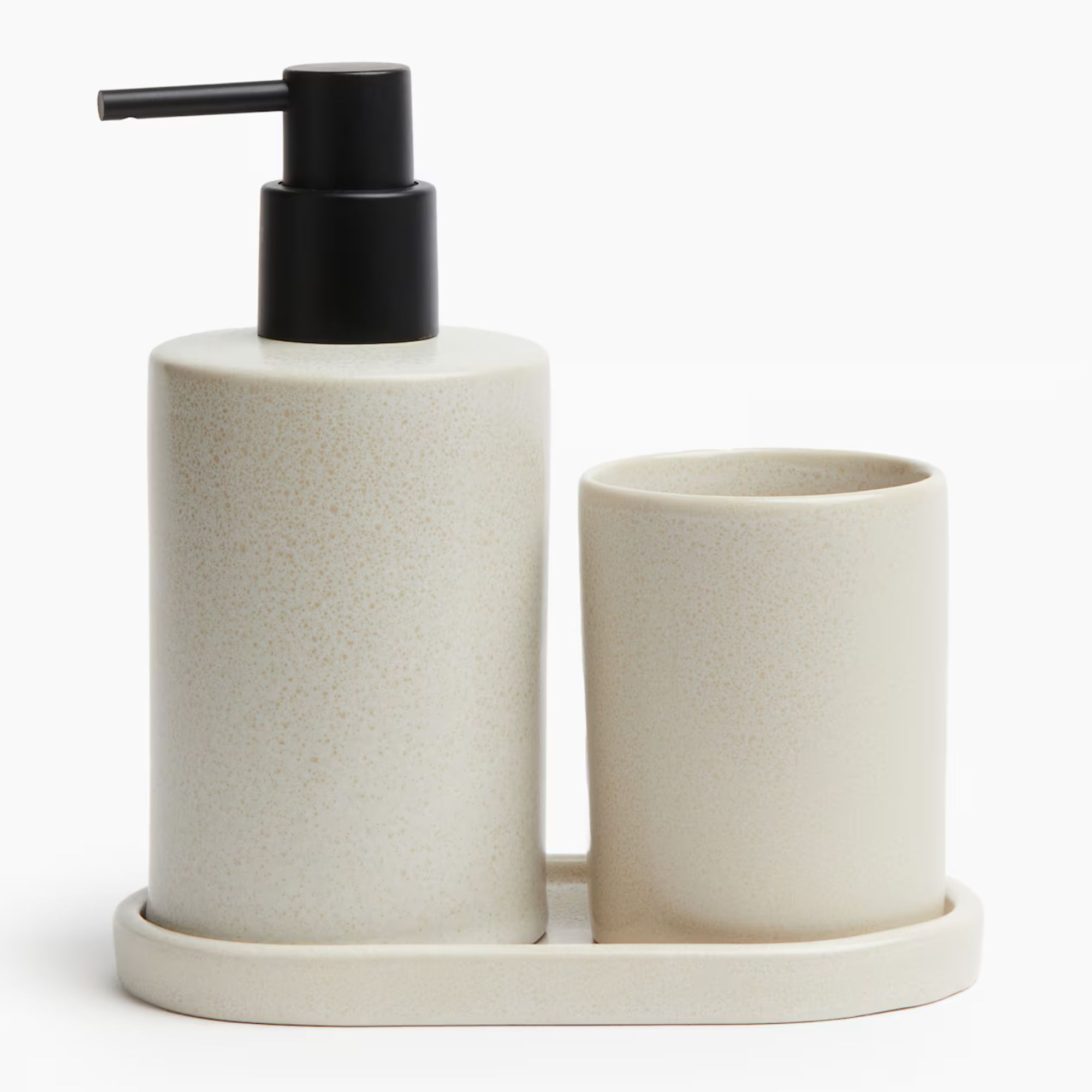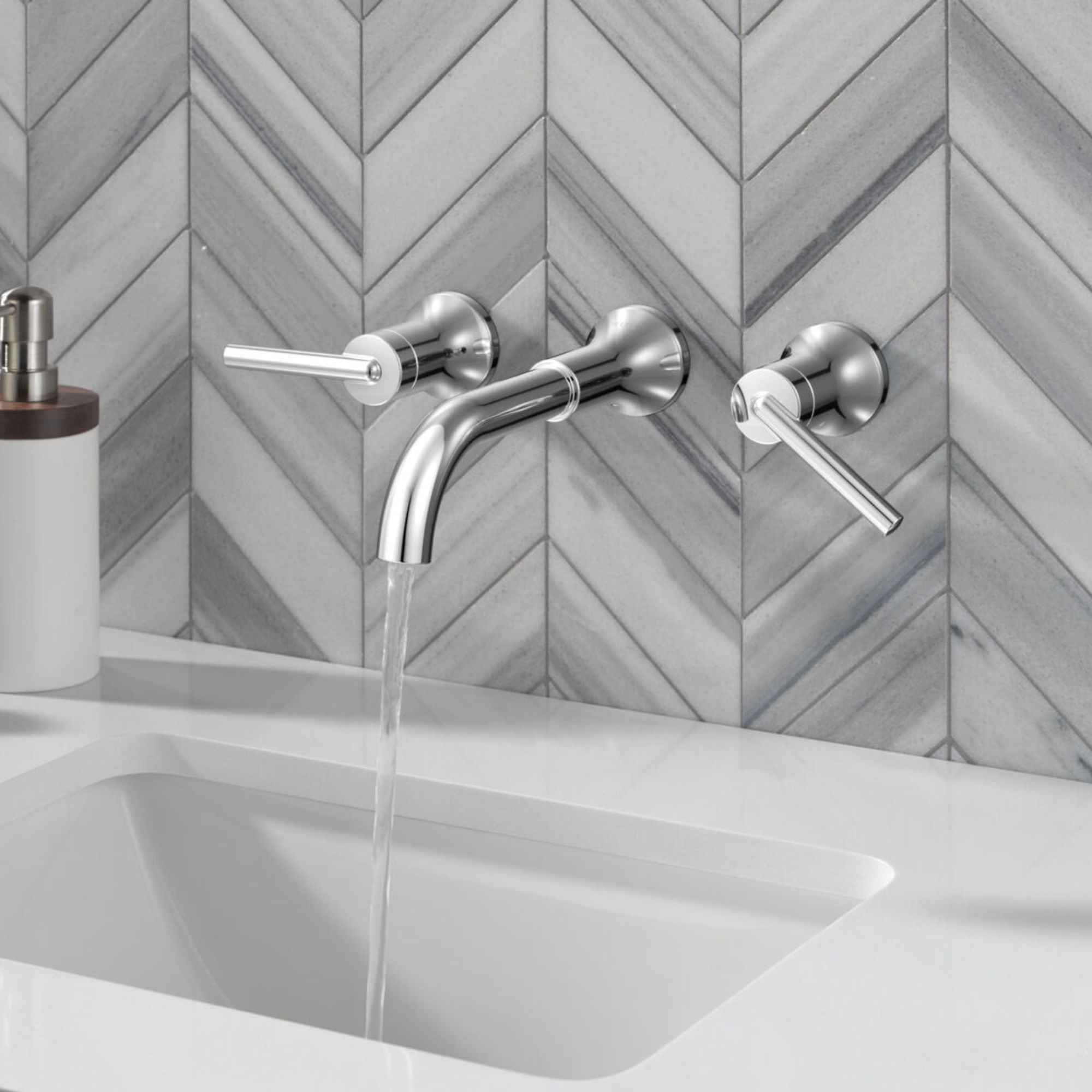9 minimalist bathroom ideas that bring personality and interest to pared-back schemes
Minimalism is back – here's how designers nail this more restrained bathroom style

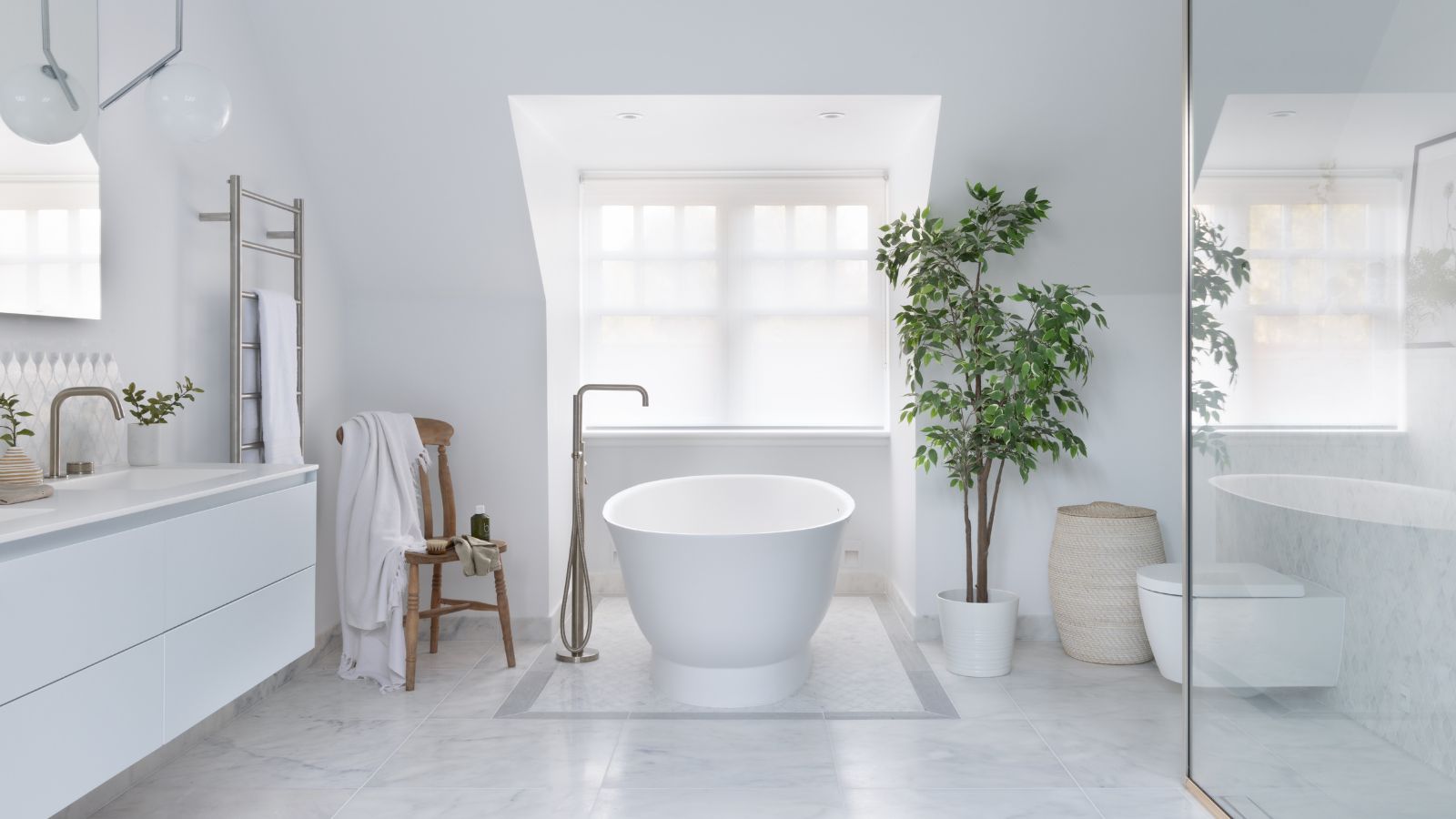
- 1. Add wood paneling for visual interest
- 2. Use texture to add depth to a minimalist bathroom
- 3. Add a sense of luxury and tranquilly
- 4. Embrace Japandi style
- 5. Add interest to a minimalist bathroom with tonal contrast
- 6. Consider a darker shade of minimalism
- 7. Introduce large format tiles for an uninterrupted flow
- 8. Focus on form and materials
- 9. Bring in warmer hues
Design expertise in your inbox – from inspiring decorating ideas and beautiful celebrity homes to practical gardening advice and shopping round-ups.
You are now subscribed
Your newsletter sign-up was successful
Want to add more newsletters?

Twice a week
Homes&Gardens
The ultimate interior design resource from the world's leading experts - discover inspiring decorating ideas, color scheming know-how, garden inspiration and shopping expertise.

Once a week
In The Loop from Next In Design
Members of the Next in Design Circle will receive In the Loop, our weekly email filled with trade news, names to know and spotlight moments. Together we’re building a brighter design future.

Twice a week
Cucina
Whether you’re passionate about hosting exquisite dinners, experimenting with culinary trends, or perfecting your kitchen's design with timeless elegance and innovative functionality, this newsletter is here to inspire
There's a real art in designing pared-back spaces, and one of the most impactful is often minimalist bathrooms. They are simplistic and uncluttered, yet with the right details, they are still full of visual interest.
Minimalism is making a steady comeback this year, with a more layered, warm approach in comparison to past years. And this reimagined take is the perfect design style for your bathroom ideas, creating a sense of calm and tranquility.
From textural wall finishes to soothing tones and organic forms, there are so many ways to nail this more pared-back look. Here's how designers are approaching minimalist bathroom style in 2025.
9 minimalist bathroom ideas for an utterly chic scheme
Minimalism's return marks a shift in the style – they're no longer cold spaces that lack personality; they're now full of tonal contrast, visual interest, and textural design. And these nine designer spaces prove how stylish they can be.
1. Add wood paneling for visual interest
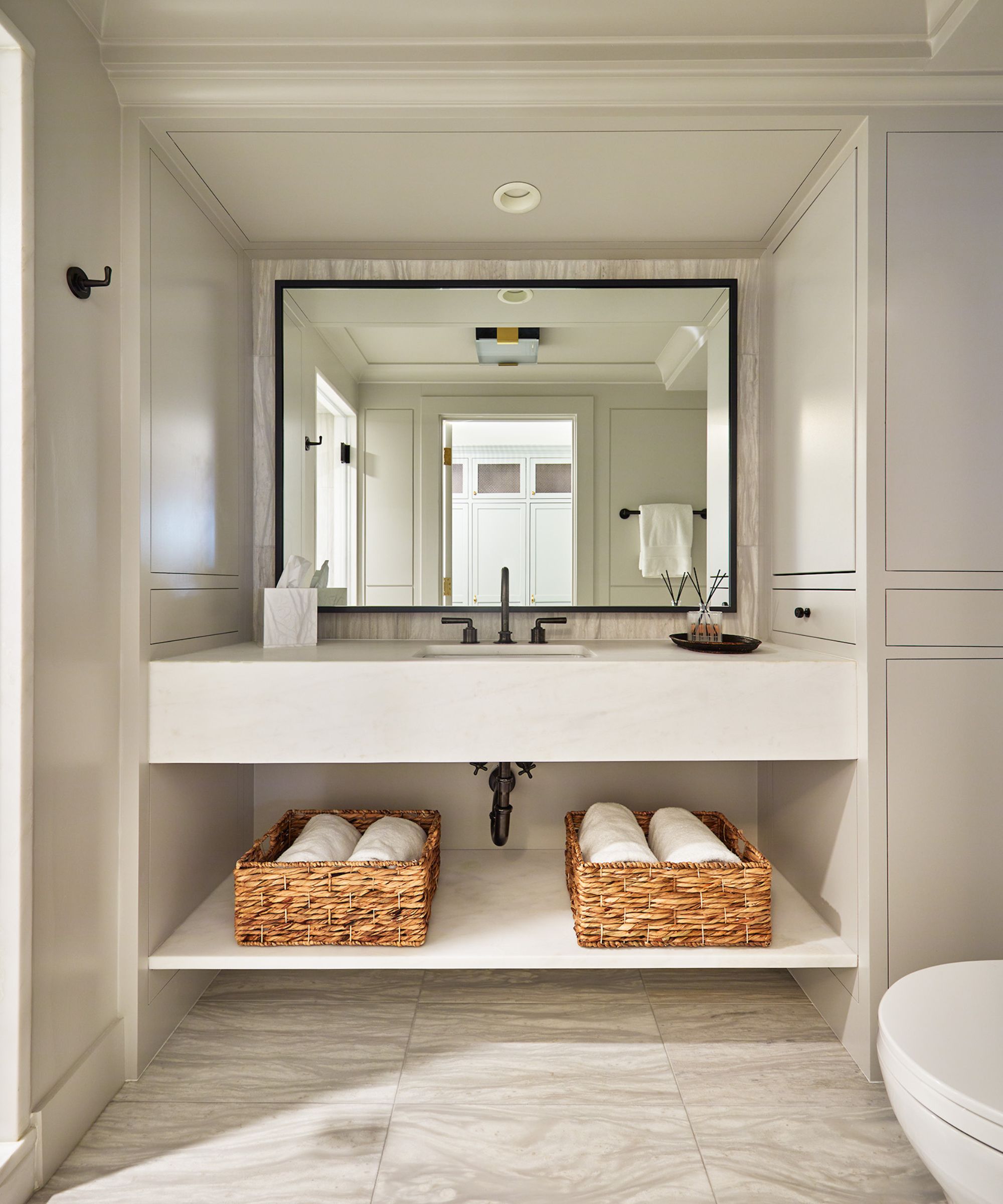
There's a common misconception that minimalist bathrooms are empty, stark white spaces. But with the right hues and materials, you can create something that feels layered and textured, like the bathroom paneling in this scheme.
'This project proves that minimal doesn’t need to be boring. Clean lines give this bath a minimal vibe, but detail is still included in the flush wood paneling and reveals, as well as the patterned stone tile, which keeps the minimal space from being boring,' says Stefan Hurray, associate at BVA BarnesVanze Architects.
The light wood paneling behind the bathroom vanity is a subtle feature, but it's certainly effective in creating interest. Black details add contrast with the lighter tones, while woven storage baskets below introduce warmth and a more natural material.
Design expertise in your inbox – from inspiring decorating ideas and beautiful celebrity homes to practical gardening advice and shopping round-ups.
2. Use texture to add depth to a minimalist bathroom
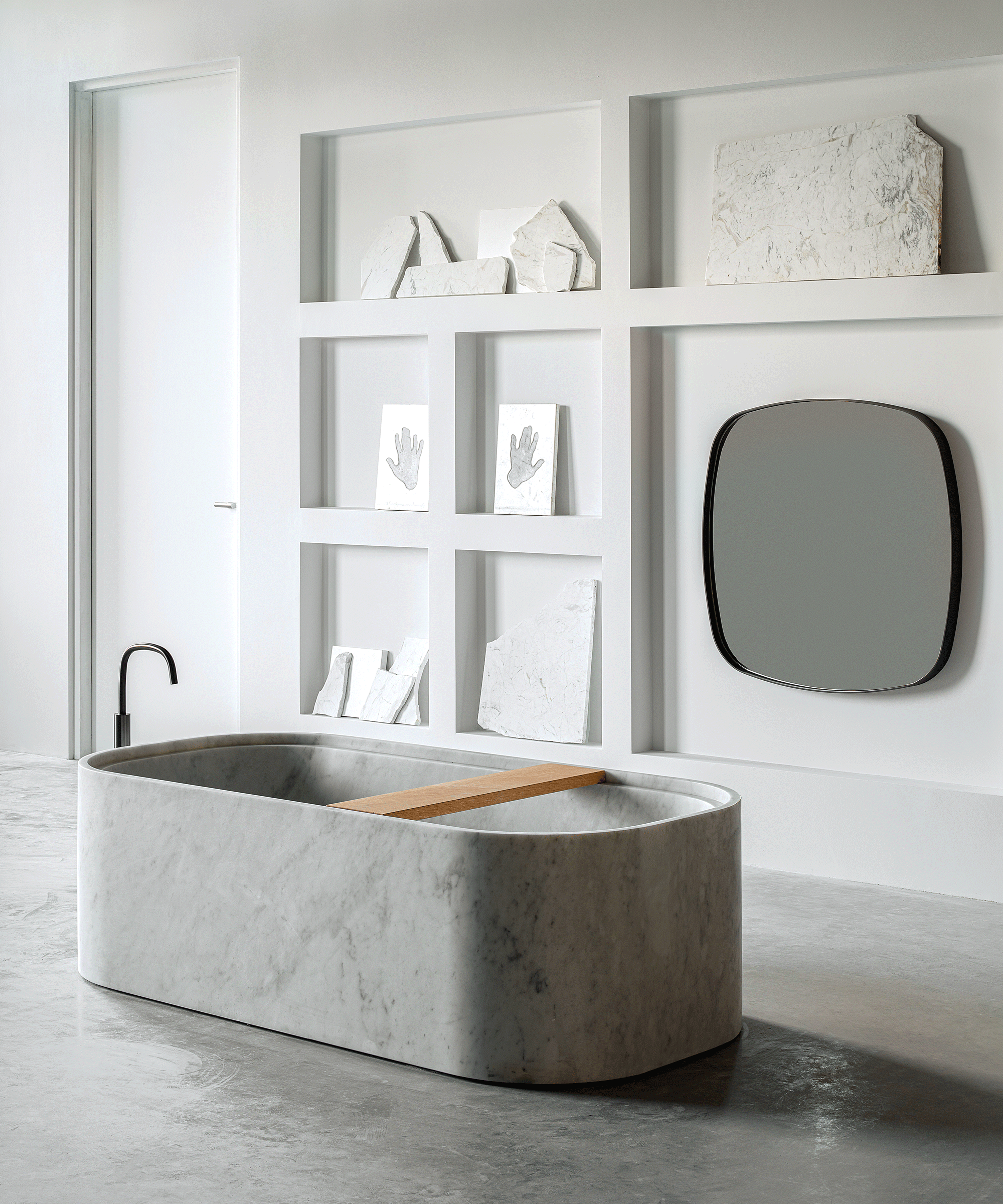
When you're designing a neutral bathroom, it's important to bring in different textures to create interest, otherwise you risk creating a scheme that feels flat and lacks any depth.
In this white bathroom, different textural layers create abundant visual interest that transforms the overall look and feel of the design. Niches in the walls create small display spaces for decor, which have been filled with rustic stone pieces and an organic-shaped black mirror for contrast.
But its the bathtub that's the true star of the show – it's the focal point that brings the whole scheme to life. A white marble freestanding tub sits at the center of the room, bringing in an different tone and so much texture. All the elements feel minimalist, but with the right amount of interest.
3. Add a sense of luxury and tranquilly
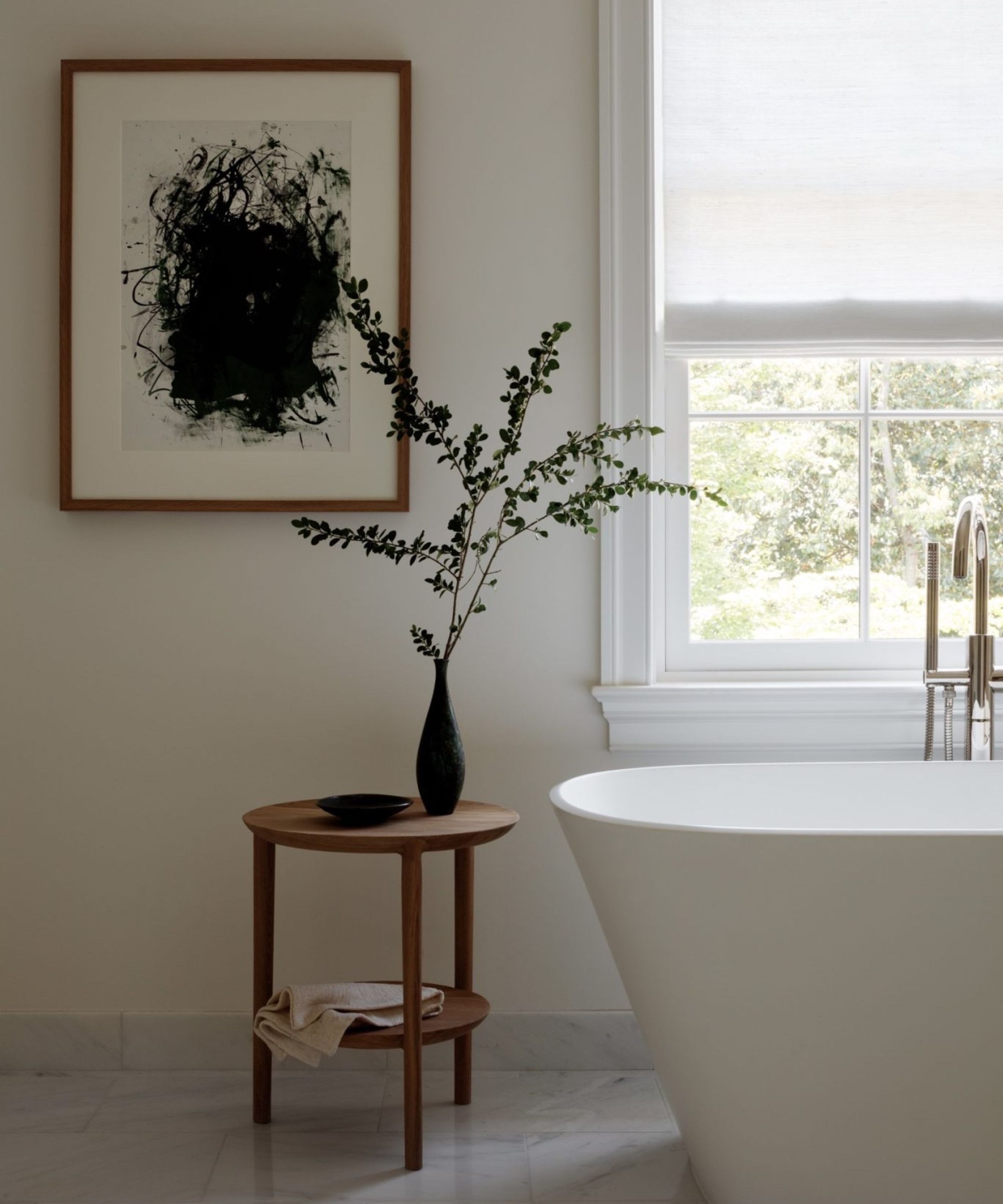
Sometimes, keeping things simple is the best way to create a minimalist bathroom that feels luxurious and tranquil. In this design, a limited palette and material selection have created a sense of relaxation and elevated the whole space.
'This bathroom was designed as a quiet study in restraint, where each detail supports a sense of calm and visual clarity. The palette is intentionally limited; warm whites, soft veined marble, and subtle nickel accents allow materiality and proportion to take center stage,' explains interior designer Christopher Boutlier.
The elements throughout the space are so intentional – the bathroom vanity features a 'slender profile and flush profiles' while wall-mounted fixtures have been introduced to avoid visual clutter, a key element of minimalist design.
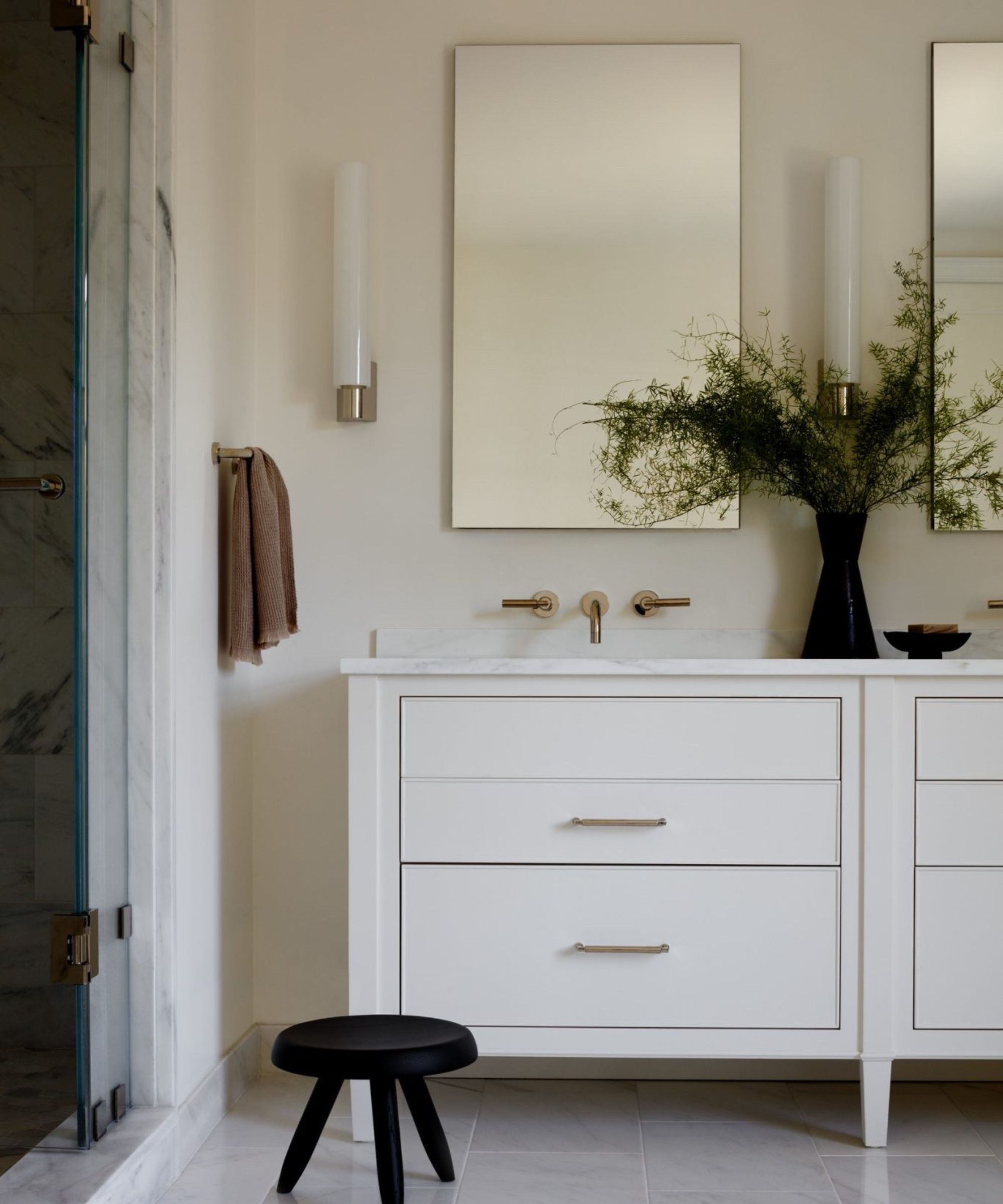
'What makes the space distinctly minimalist is the careful balance of form and function. There is no excess: bathroom lighting is sculptural but discrete, and every object is curated to serve both aesthetic and practical roles. Electrical outlets are thoughtfully concealed within the mirrored medicine cabinets to preserve the purity of the wall surface,' explains Christopher.
'The black stool and vase punctuate the space with contrast, grounding the otherwise ethereal tone. A restrained composition of natural elements, wood, stone, and greenery, adds depth without decoration. The result is a space that feels timeless, quietly luxurious, and deeply livable.'
4. Embrace Japandi style
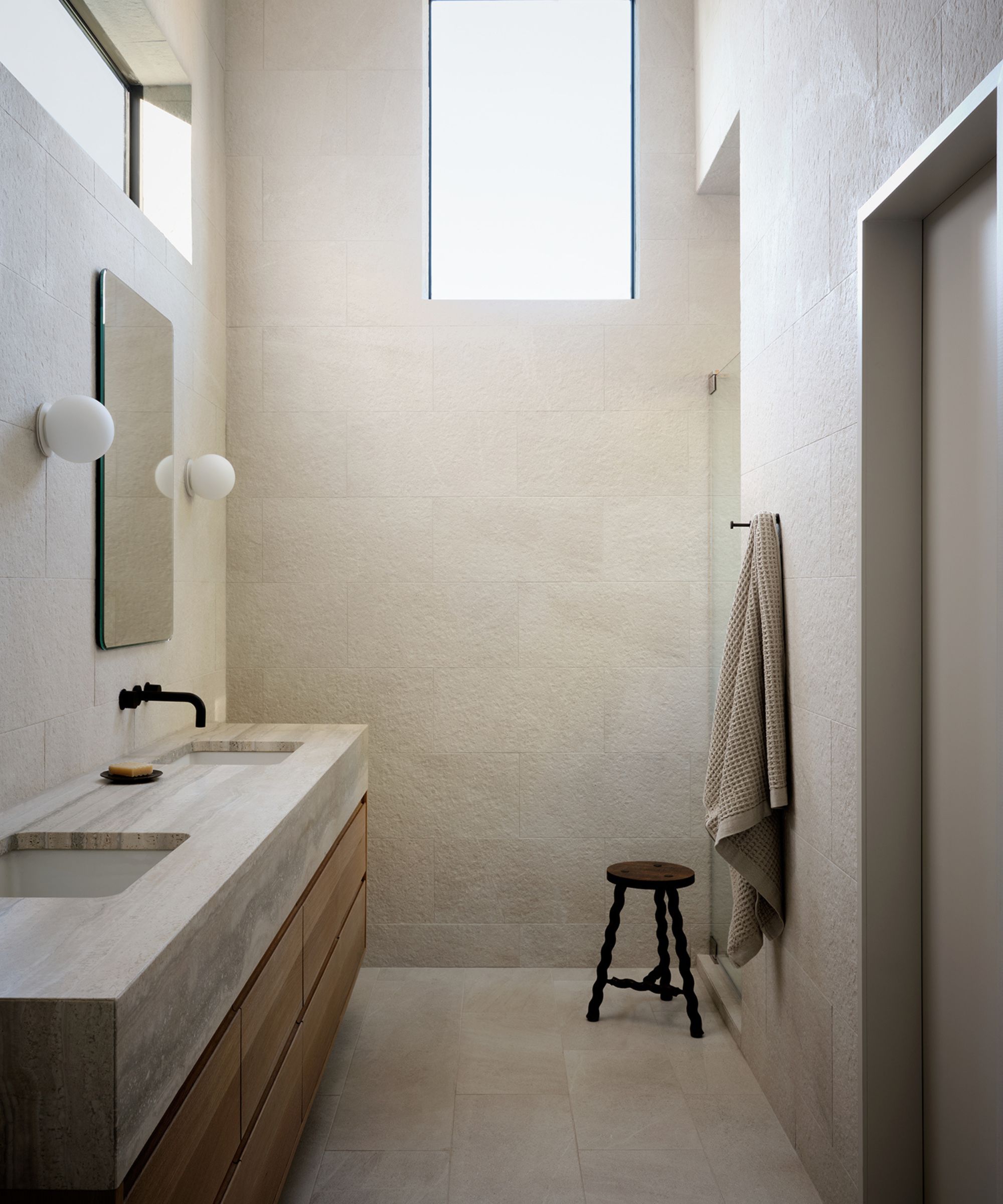
Minimalism isn't just an aesthetic in itself – it's an ethos that is embraced in many interior design styles. And one of the most impactful is Japandi style, in particular the serenity of Japandi bathroom ideas.
In this design, warm neutrals have been used on every surface with a subtle texture, which instantly creates a calming atmosphere. The addition of the wooden vanity brings in a more natural finish and offers a nod to the serenity of nature.
This style, while still minimalist, proves you can create a more simplistic space without it feeling stark or cold. The balance of richer neutrals and natural materials is timeless and far more inviting.
5. Add interest to a minimalist bathroom with tonal contrast
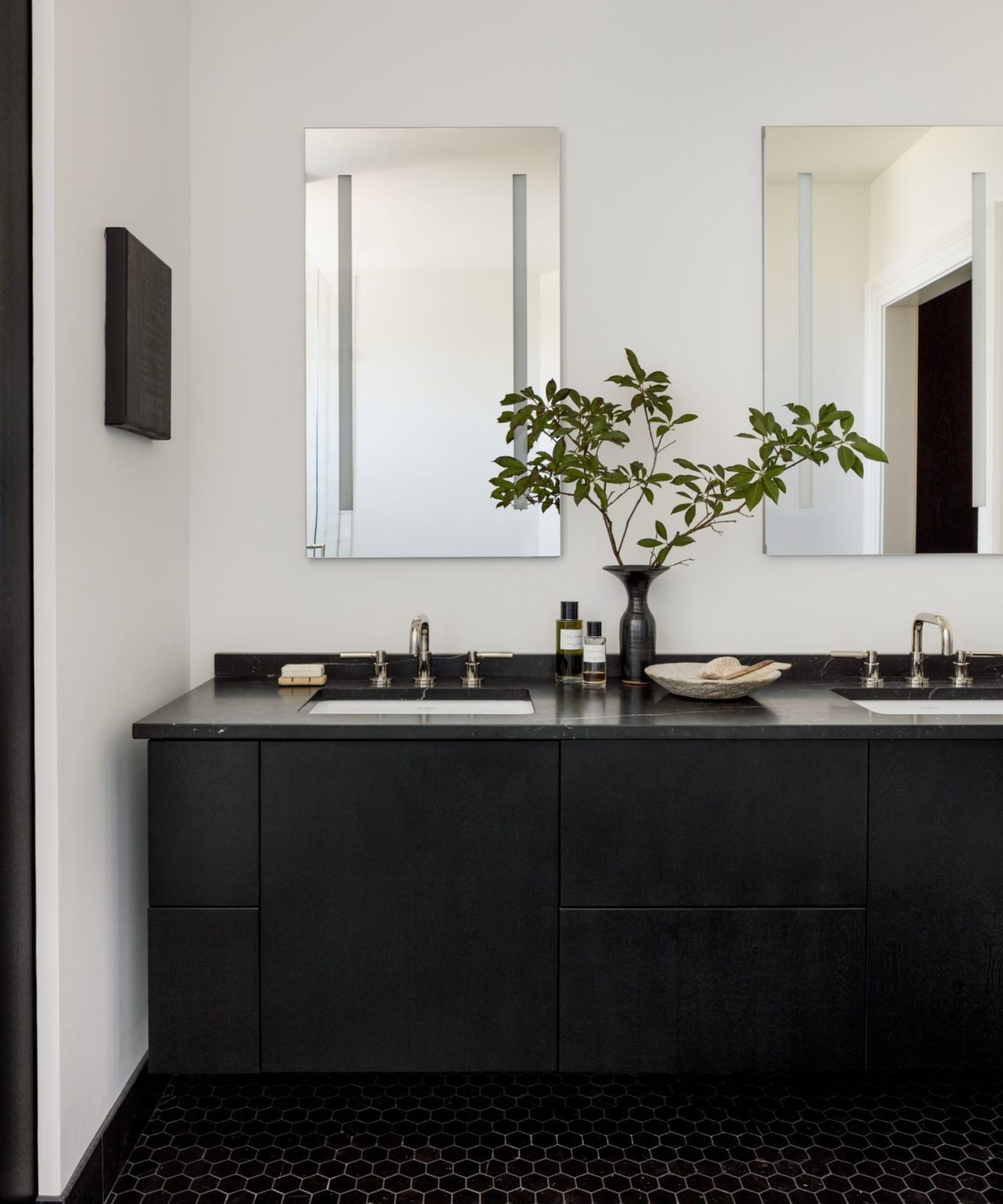
There's a place for bold contrast in a minimalist scheme. One color combination in particular that can be truly striking is black and white. After all, it's a classic palette for a reason. In this scheme, the two opposite tones perfectly combine to create a minimalist feel.
'This black and white bathroom was conceived as a study in tonal contrast, where minimalist principles are applied with warmth and precision. The palette is deliberately reduced: blackened wood, white walls, honed marble, and dark hexagonal tile, allowing the interplay of texture and geometry to define the space,' says Christopher.
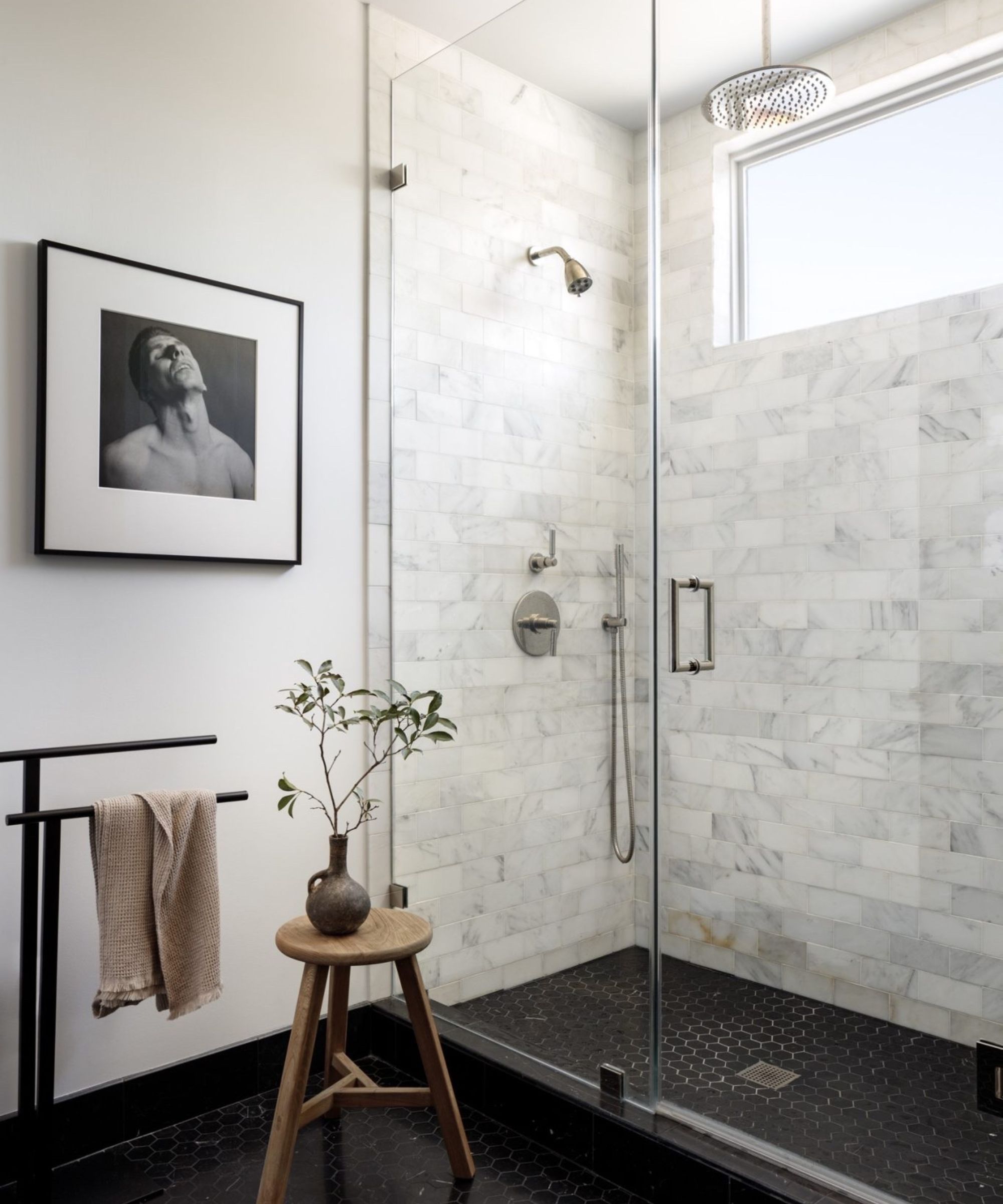
The black vanity creates a striking focal point, seamlessly flowing into the dark bathroom flooring. Monochromatic decor solidifies the color palette, while chrome faucets tie into the hardware used in the shower area.
'The material palette remains consistent but never flat: natural variations in the stone, the soft grain of wood, and the organic silhouette of a single branch add depth and tactility. The result is a space that feels modern, grounded, and restrained, with an atmosphere that invites pause and presence,' he explains.
6. Consider a darker shade of minimalism
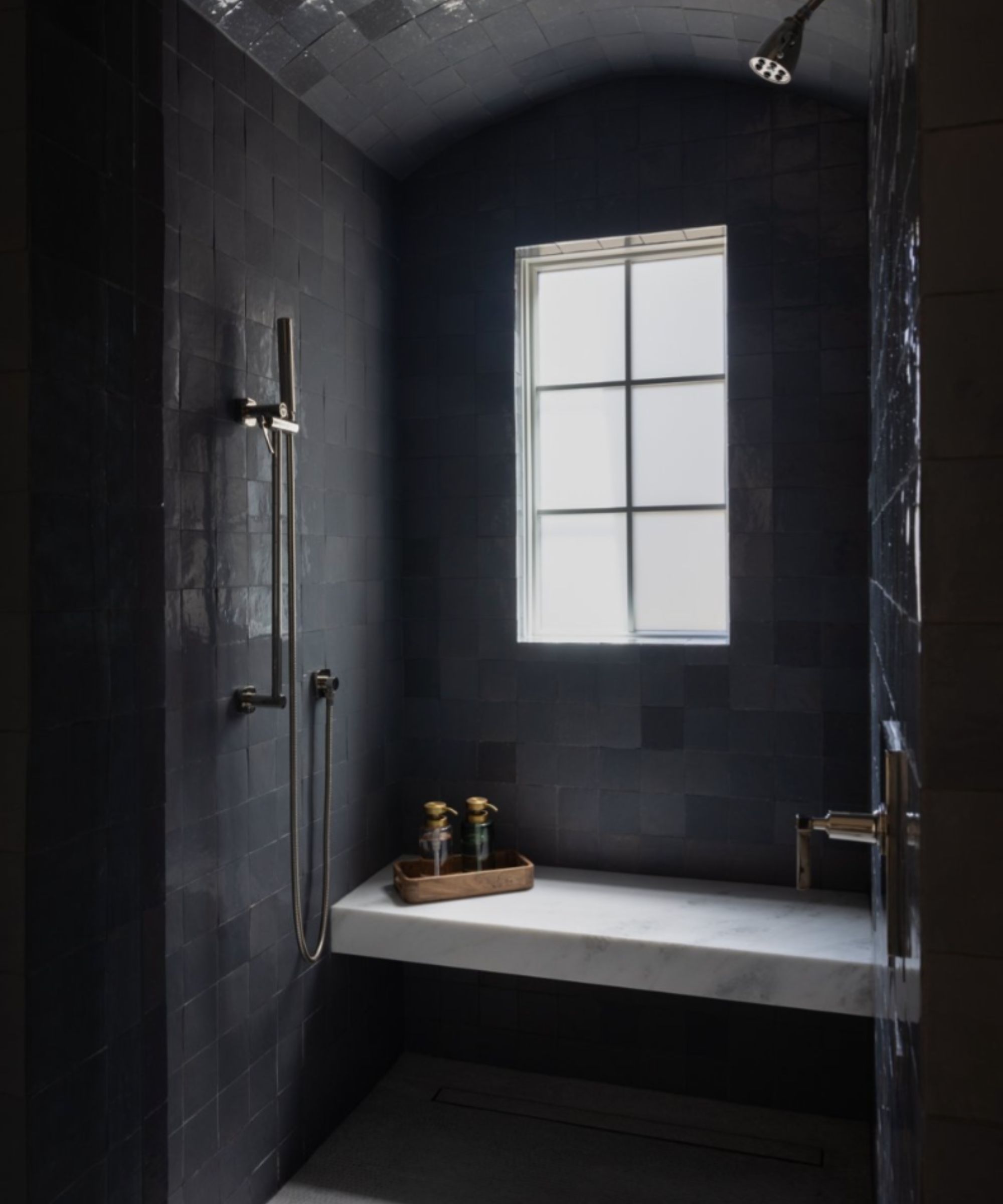
Designing a minimalist bathroom doesn't have to include a palette of light neutrals. It's easy to forget that even the darkest tones can still be simplistic – think of it more as moody minimalism, like in this shower room.
'The key to a minimalist bathroom design is to let the materials speak for themselves. These serene, unfussy spaces rely on timeless elements to create a sense of calm and quiet luxury,' says Bambi A’Lynn Bratton, of Bambi A’Lynn Interior Design.
'Tile selections and clean architectural lines ensure the focus remains on form, texture, and light. There’s no need for art or accessories; every element serves a purpose, and nothing distracts from the natural beauty of the materials.'
7. Introduce large format tiles for an uninterrupted flow
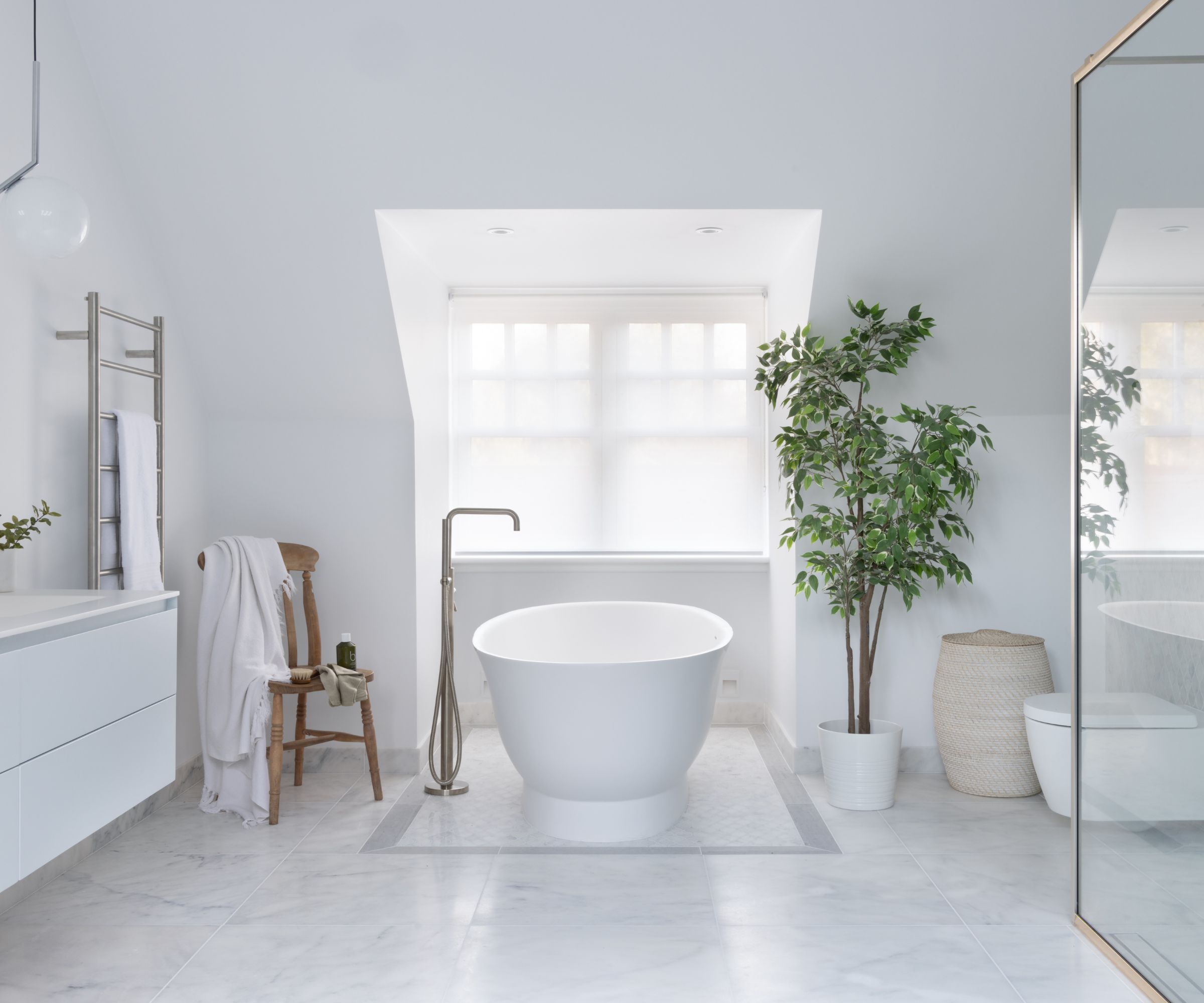
If you want a minimalist bathroom that feels open, airy, and void of visual divides, there are a few elements that need extra consideration. Bathroom floor tiles, for example, can change the overall feel depending on their size, like in this scheme.
'This space captures the essence of modern minimalism, not through starkness but through balance. Everything has been pared back to its purest form: soft-edged geometry, clean-lined fittings, and a tonal palette that feels calm rather than cold,' says Louise Ashdown, head of design at West One Bathrooms.
'The large-format marble-effect tiles enhance the sense of flow and space, while subtle framing around the bath anchors the layout without disrupting it. What makes this bathroom so successful is the control – nothing is fighting for attention, yet every detail has been carefully considered. It’s a confident, contemporary take on minimalism.'
8. Focus on form and materials
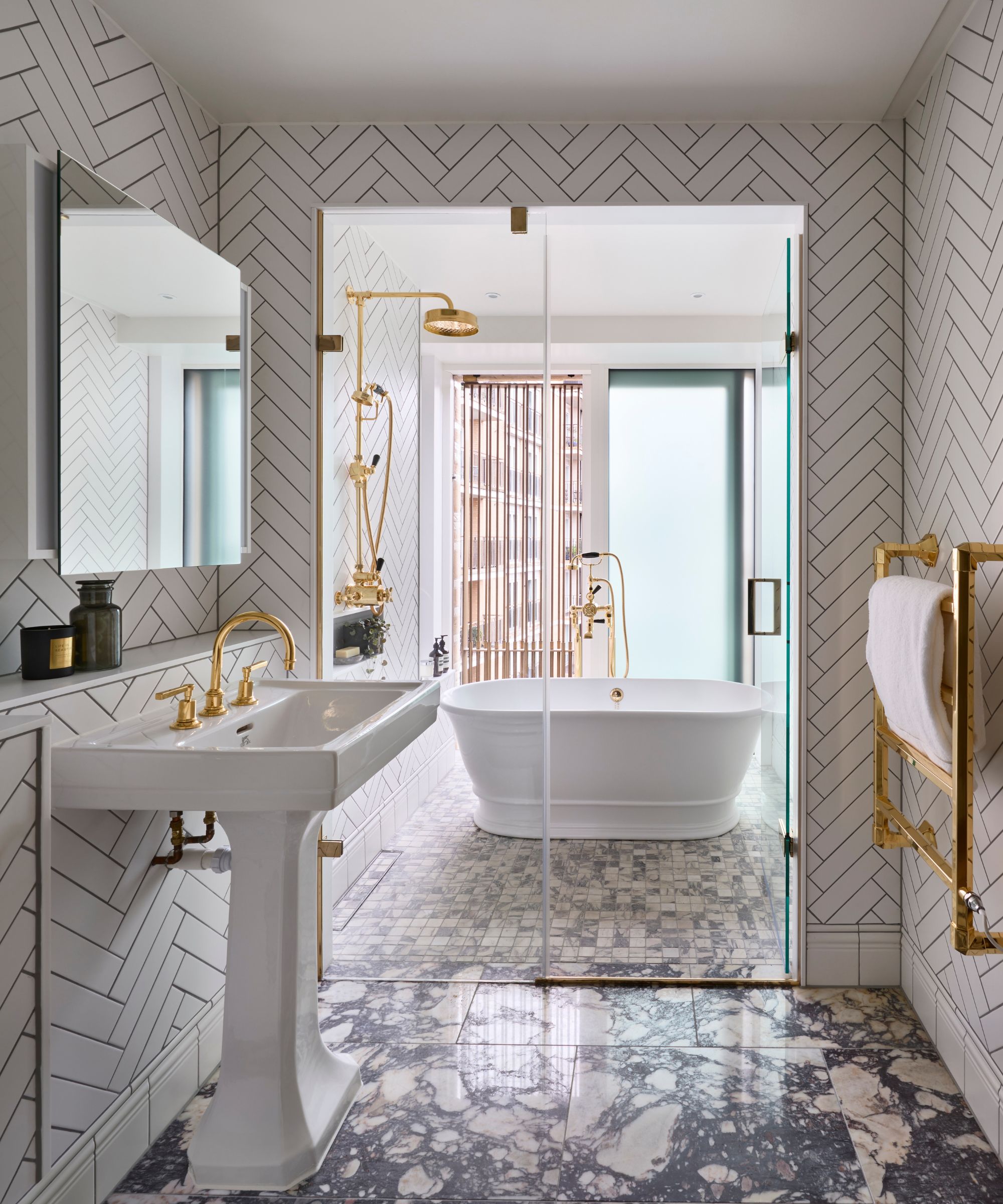
Minimalism looks different to everyone. For some, it's about very simple, pared-back design, for others, it's a neutral color palette with visual interest created through materials, like in this bathroom.
'This bathroom takes a more structured approach to minimalism. There’s a clear focus on form and material; think clean lines, defined zones, and a limited palette that’s used with purpose,' says Keeley Sutcliffe, design manager at BC Designs.
'The freestanding bath anchors the room without the need for excess detail, and the use of different tile formats helps define each area without clutter. It’s a good example of how minimalist design can still feel finished and functional but without being overly cold and uninviting.'
9. Bring in warmer hues
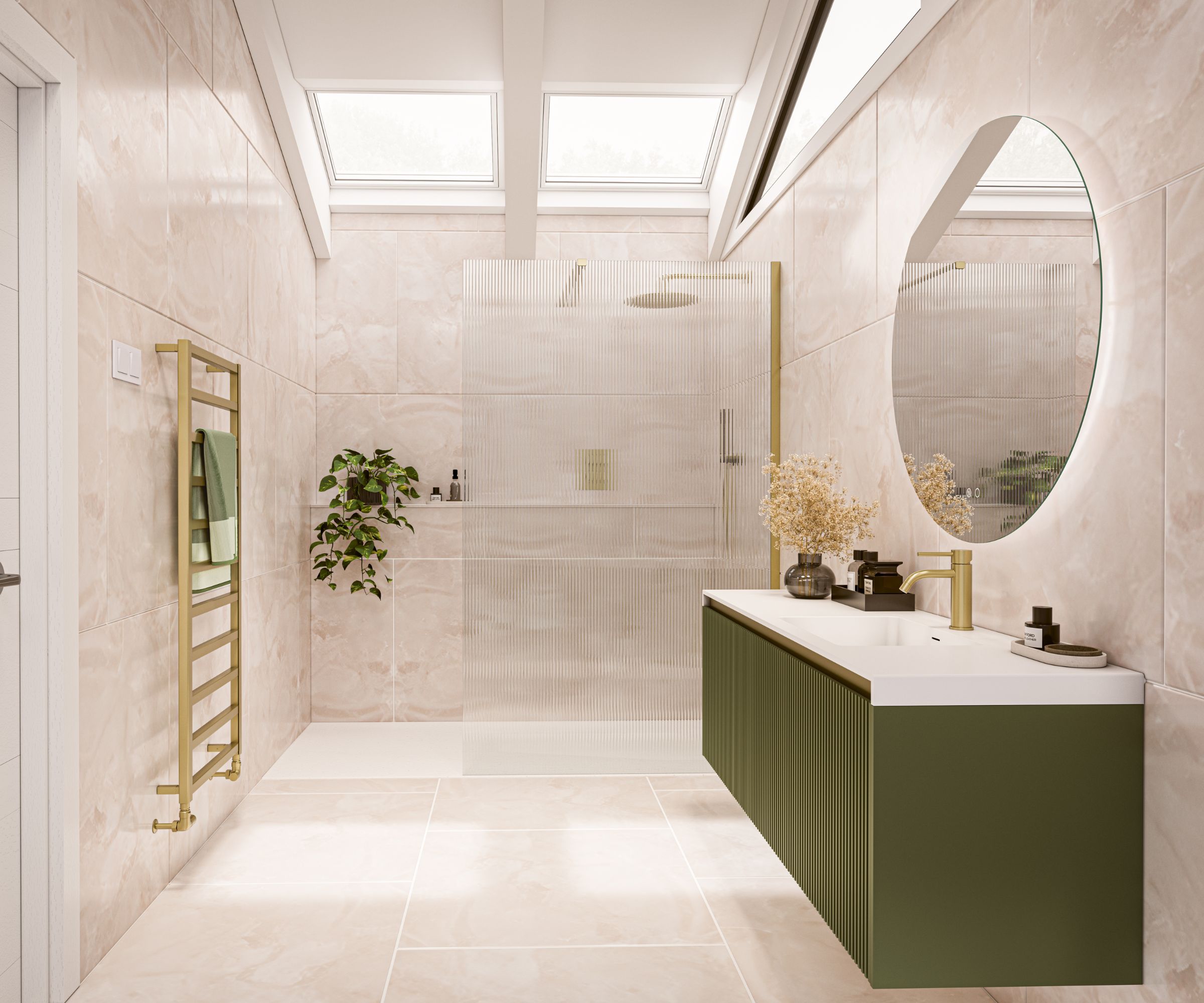
There's a common misconception that for a bathroom to feel minimalist, it must be white. However, there are plenty of warmer tones and more saturated colors you can introduce that won't take away from the design ethos of minimalism.
'This bathroom takes a minimal approach but introduces warmth through tone and texture. The large-format tiles reduce grout lines, while the fluted vanity adds depth without needing extra detailing through accessories,' says Sally Bettison, design manager at Tissino.
'The walk-in shower with a fluted glass screen keeps the space feeling open but still zoned. It’s a good example of how minimal design can still offer interest and warmth to make the space inviting.'
Shop minimalist bathroom accessories
A minimalist bathroom should feel simplistic and tranquil, while still feeling stylish and visually interesting. Whether you opt for a plaster bathroom for texture, introduce wood paneling, or decorate with moody colors for a darker take on minimalism, this new approach to pared-back design is here to stay. If you're decorating with neutrals, make sure you test lots of bathroom paint colors to find the right hue for your space.

I’ve worked in the interiors magazine industry for the past five years and joined Homes & Gardens at the beginning of 2024 as the Kitchens & Bathrooms editor. While I love every part of interior design, kitchens and bathrooms are some of the most exciting to design, conceptualize, and write about. There are so many trends, materials, colors, and playful decor elements to explore and experiment with.
